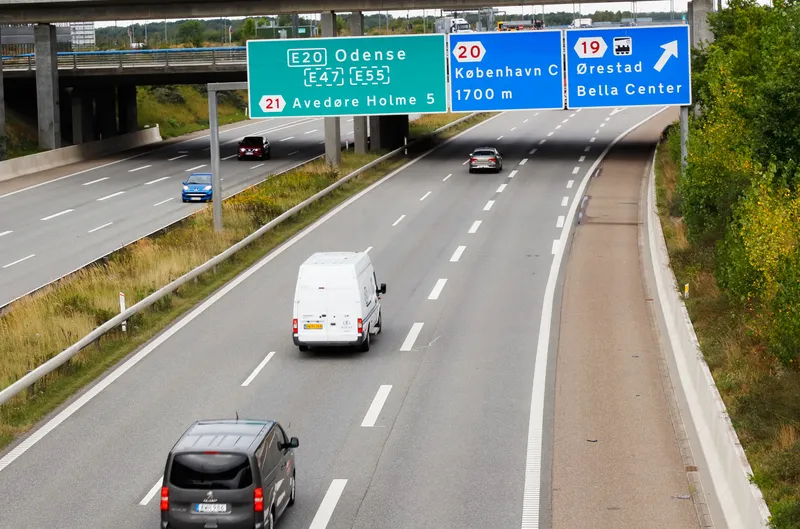
The Danish road authorities are considering using a noise reducing pavement, similar types in Germany and the Netherlands, on Copenhagen’s busy Motorring 3.
The Danish parliament has said it will considering improving the noise reduction systems along Motorring 3 rather than spending money on widening the busy motorway from four to six lanes.
The 19km-long Motorring 3, west of the capital, connects the Helsingør motorway with the Køge Bugt motorway and is part of the European roads E47 and E55. Around 48,000 vehicles used the highway daily in 1990, rising to about 130,000 in recent years, according to data from Vejdirektoratet, Denmark’s national road directorate.
Around €48 million was set aside for extending the Motorring 3, a project that has now been put on hold, according to a report in the Danish engineering newspaper Ingenioren. The idea was to make the hard shoulder, or emergency land, into a live running lane, as well as a reduction in speed from 110kph to 90kph, the newspaper noted.
Instead, three noise-reduction methods will be studied: extension of the existing noise barriers, an updated more modern physical noise barrier to be built in the middle section of the motorway and a type of new noise-reducing asphalt already used in Germany and the Netherlands.
The noise reduction study must be completed by mid-2024 and then a final decision will be made on what the earmarked money will be must be used.









